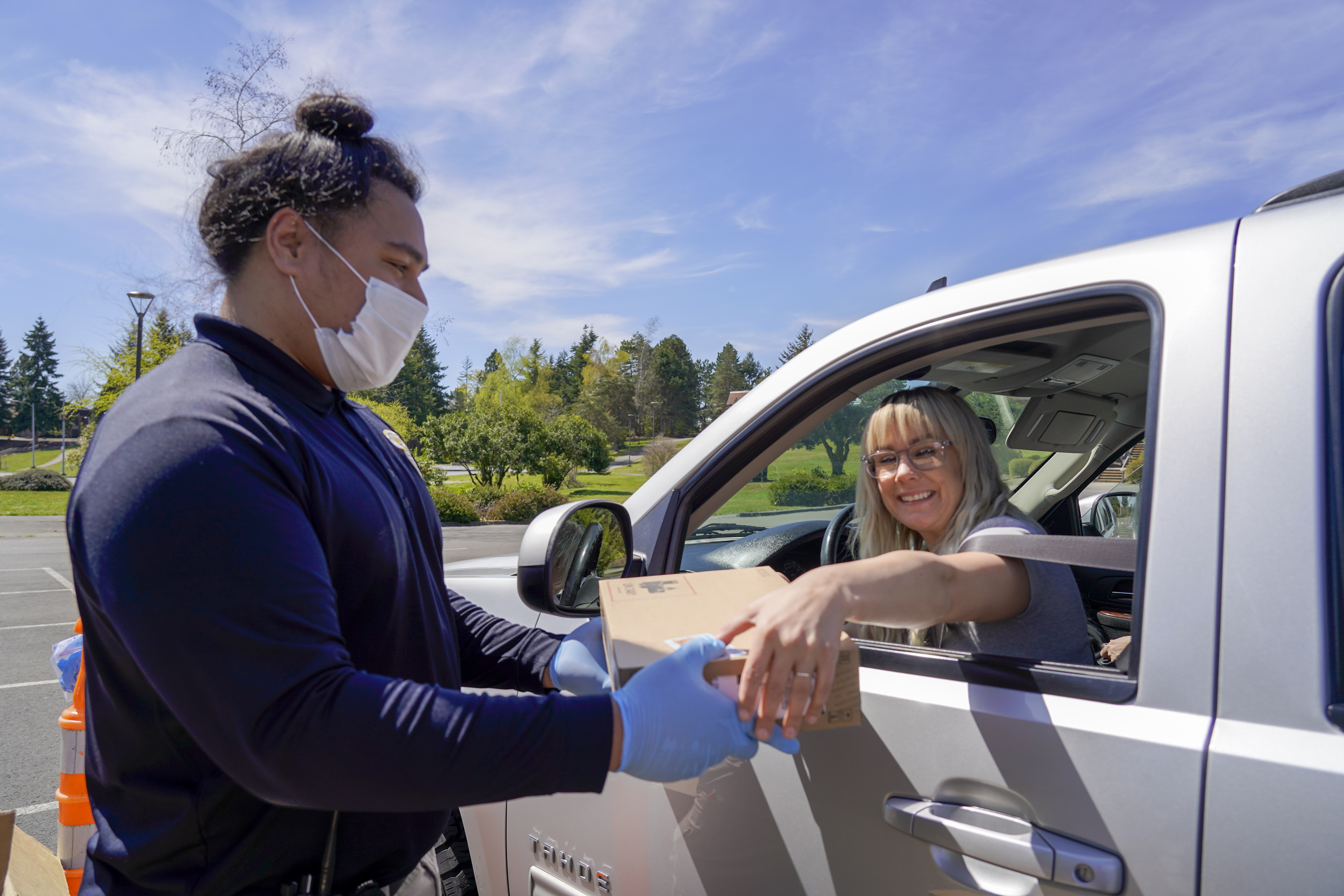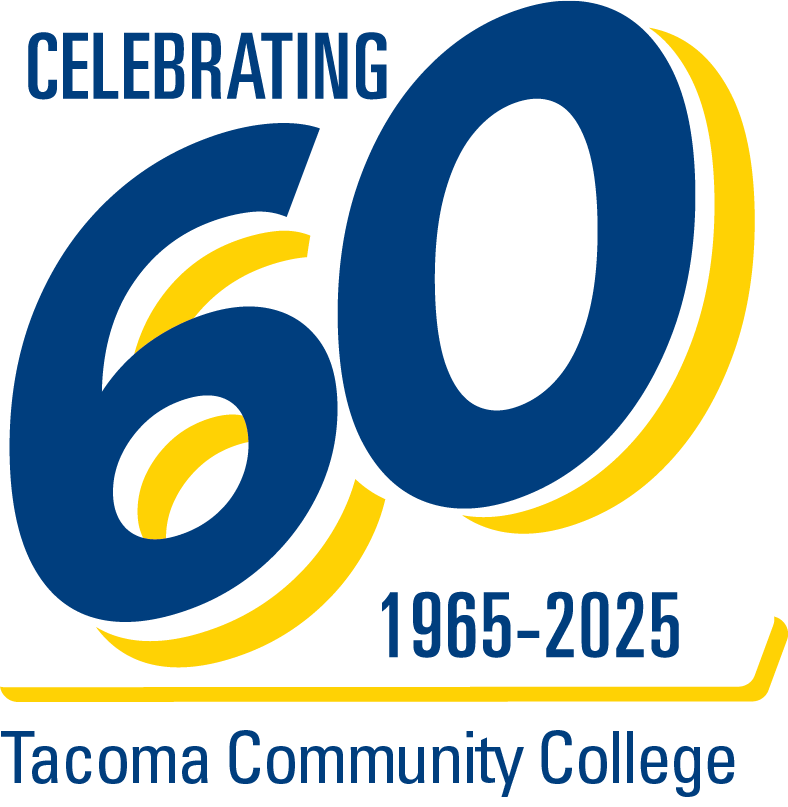Relevant and Accessible Learning
Personal relevance has always been an essential element of teaching and learning at TCC, and courses reflected this too. This is emblematic in the development of African-American curriculum after the demands of Black TCC students,87 the growth of occupational programs during economic recession,88 and in courses where students co-create their curriculum.
Faculty and staff have found innovative, high- and low-technology strategies to reach learners, especially those with barriers to classroom access. TCC offered self-paced learning options practically from the beginning of the college using a variety of media and technologies. Career-based programs helped working students gain credit and continuing education in their fields, or learn new job skills in supported campus roles. Other programs and courses center student interests to build interdisciplinary, student-led learning opportunities.
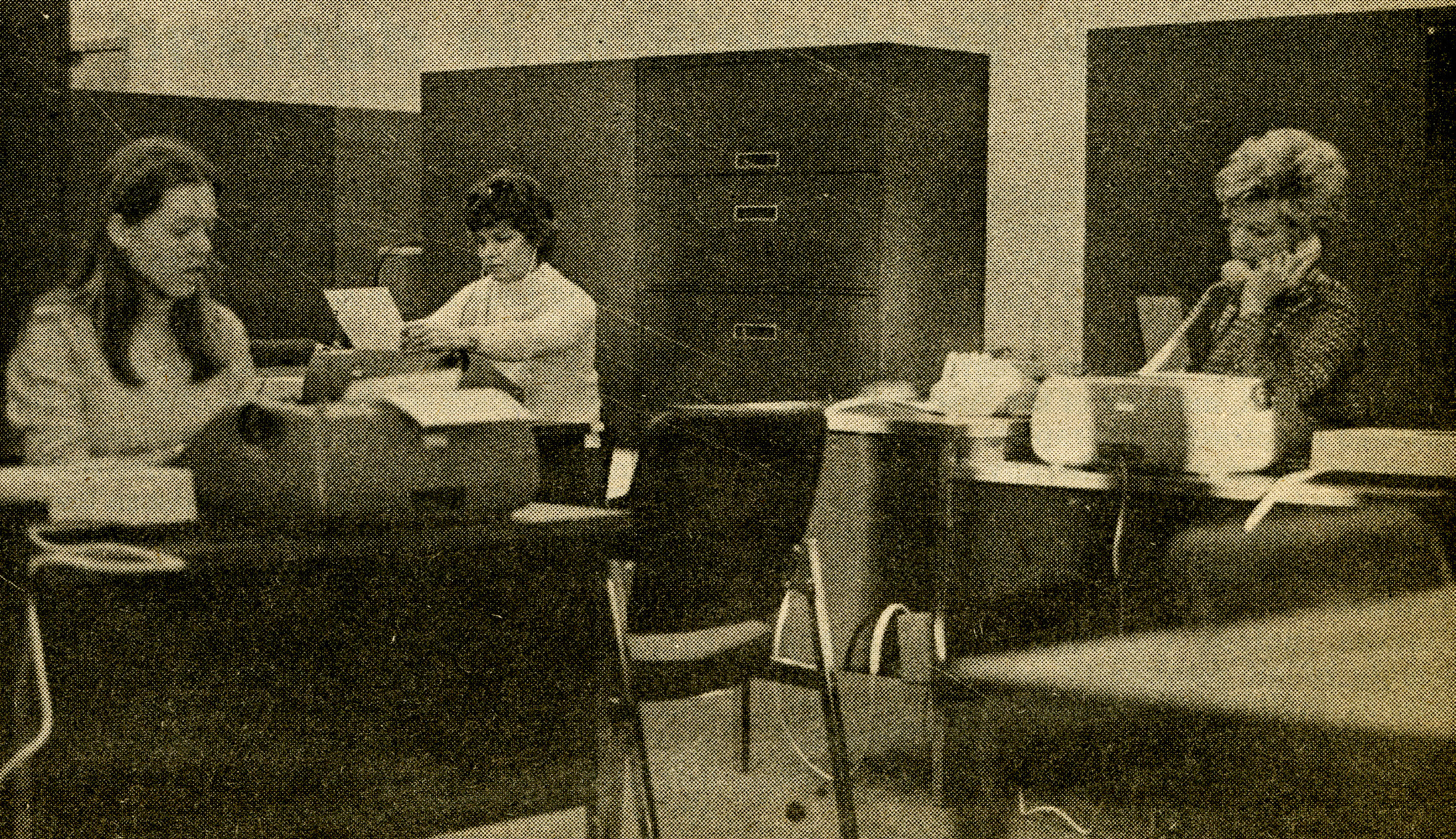
The Model Office Program gave receptionist, office manager, and secretarial students practice access to specific office technologies.
"Contemporary Biological Problems"
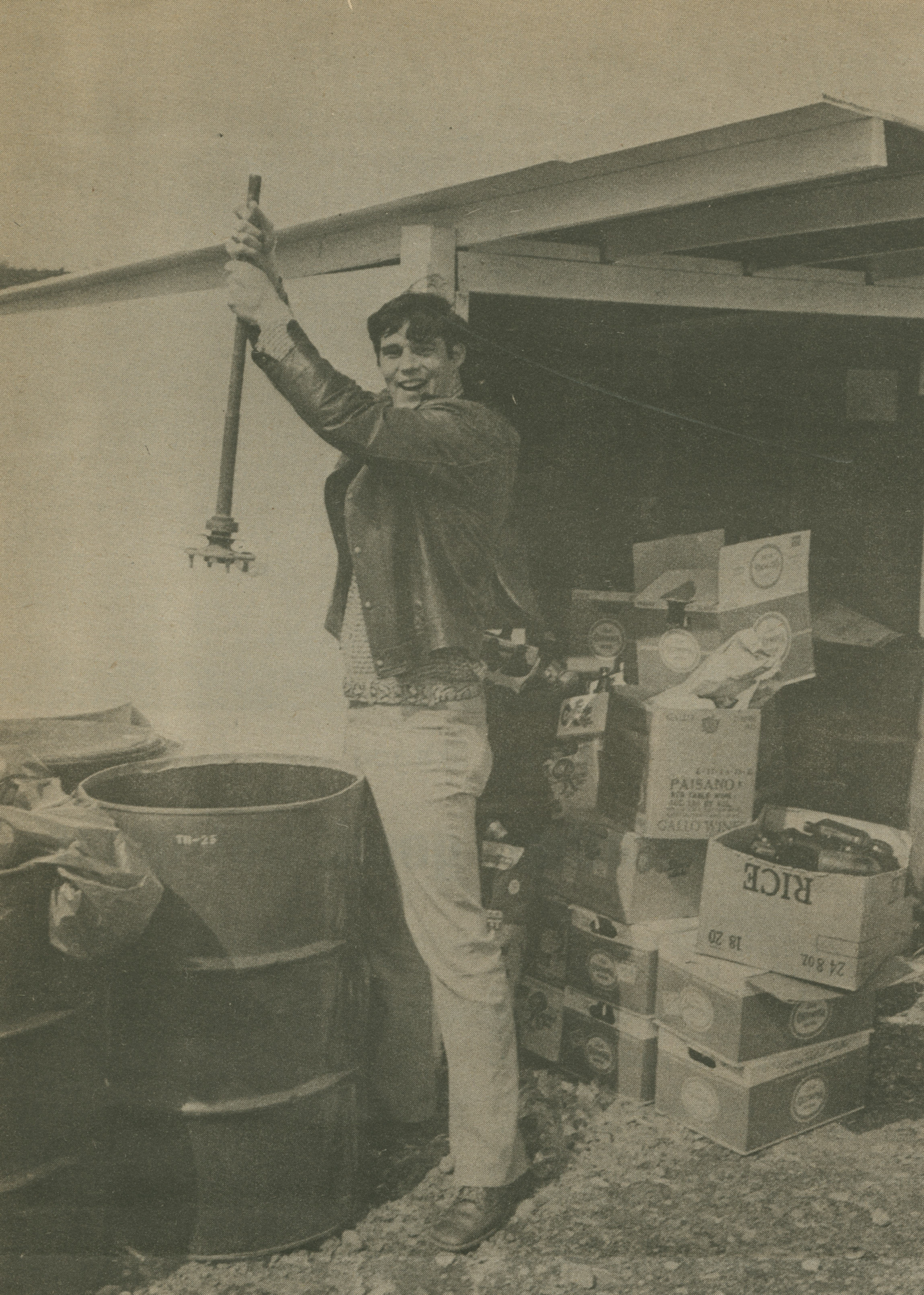
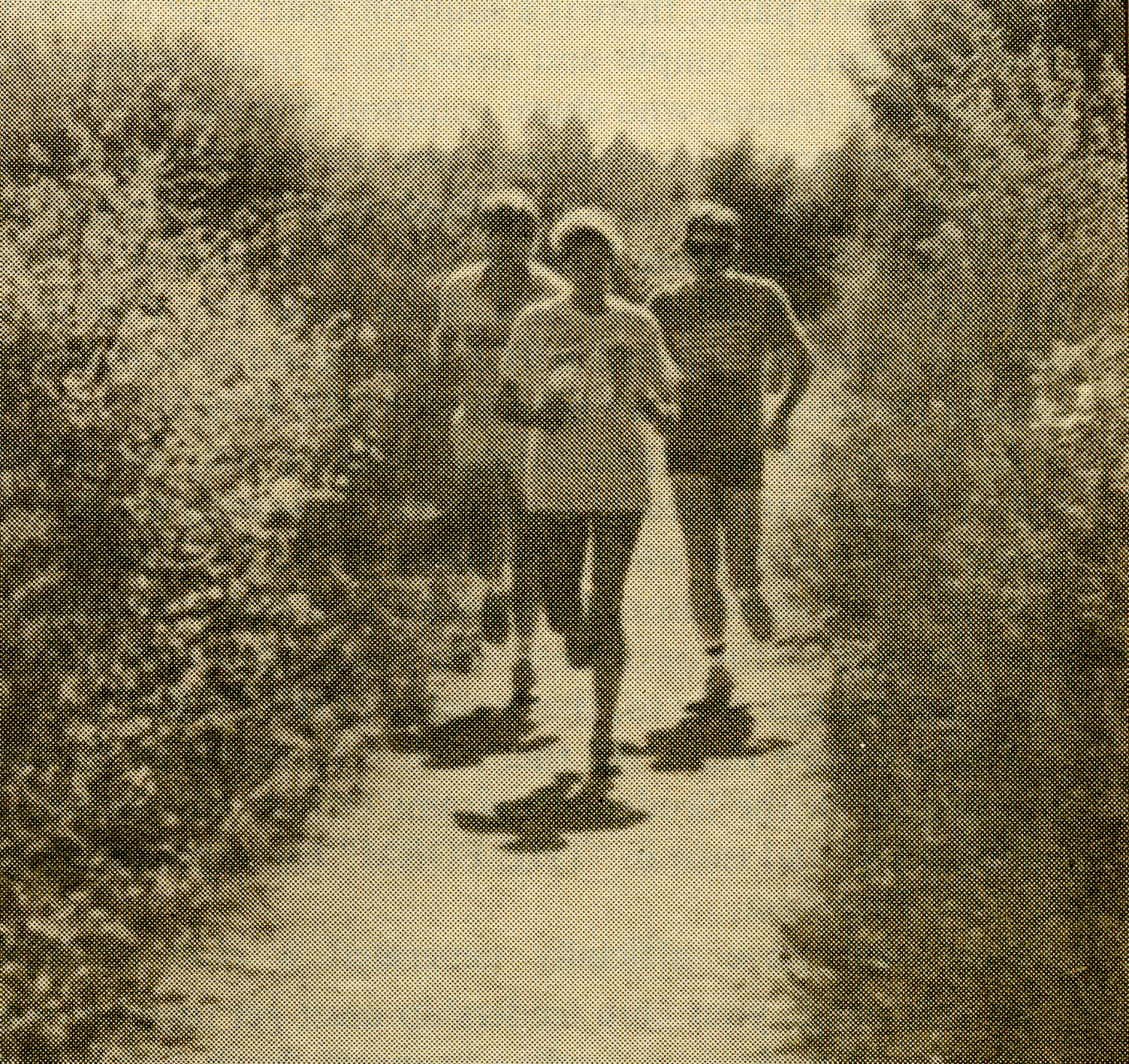
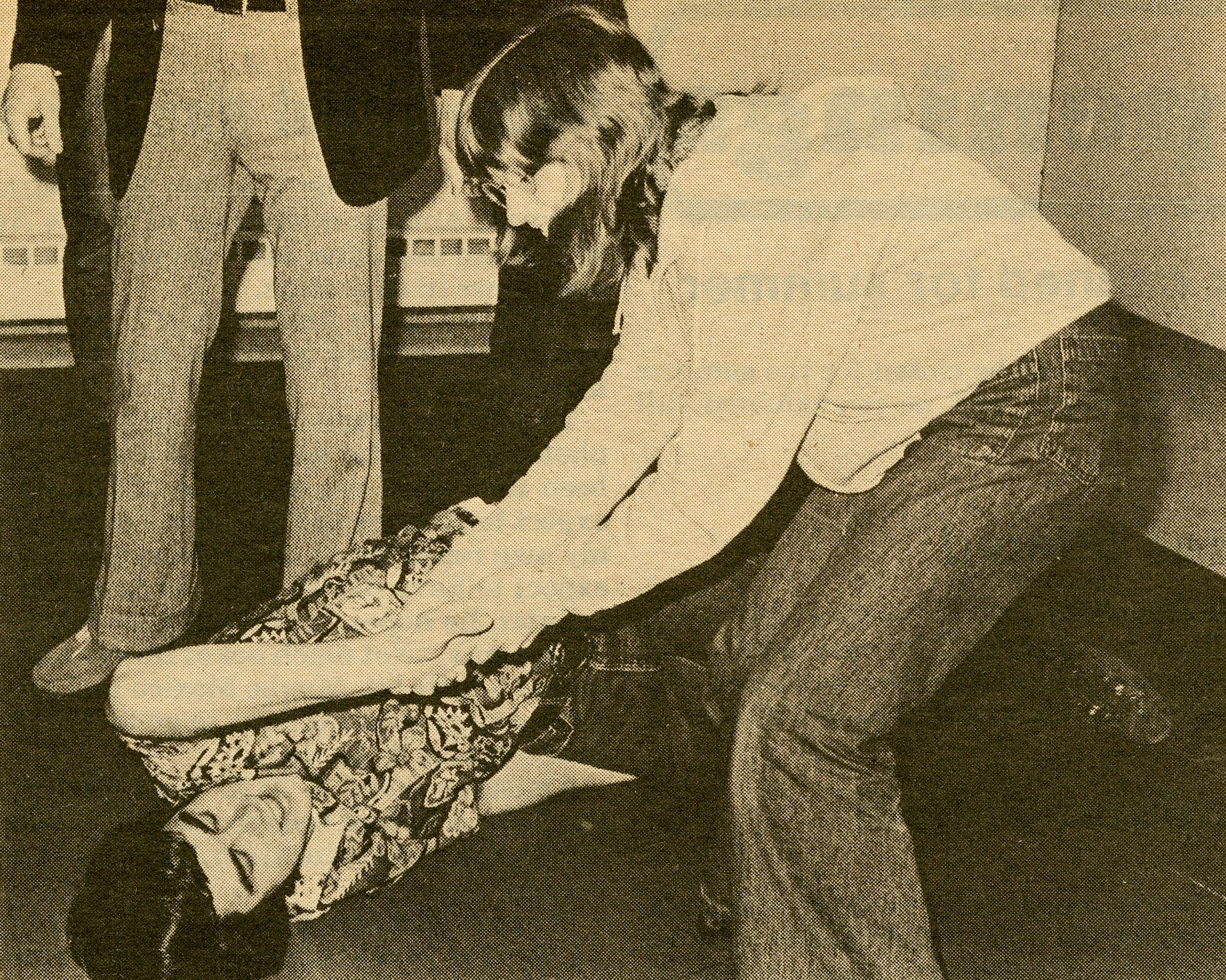
Biology 106: Contemporary Biological Problems was one of TCC’s earliest science courses, geared toward non-major students. The course was originated by instructor Melvin Urschel in 1969, but shortly after taken over by instructor Richard Perkins.89 Perkins’ unique approach in this course emphasized student choice, personal relevance, and co-creation of learning in the classroom. Rather than a typical laboratory biology class, "Contemporary Biological Problems" brought a biology lens to everyday issues the students were invested in. The non-laboratory focus of the course also allowed for its adaptability to less-equipped teaching spaces, and Perkins taught biology in a similar method at McNeil Island Federal Penitentiary in the 1970s.90 Over the years, student projects in this course found solutions to real world problems within the TCC community, some having lasting lives long beyond the student’s tenure at the college. Projects included:
- The first recycling program at TCC, which collected glass and aluminum.91 92 The program, dubbed Project HIPPIE (Help In Preventing Pollution In the Environment), was self-sustained by the sale of the materials to processing companies like Seattle’s Northwest Glass, and staffed by volunteers and student workers paid from work-study and the proceeds.93 94
- Establishment of a TCC reserve at the Pierce County Blood Bank, which allowed members of the TCC community to access donations during medical procedures at low- or no-cost rates.95 Over the years following the creation of the reserve, donations were used by students, faculty, staff, and even their family members during surgeries and other transfusion needs.96
- Shifting campus smoking policies, including provision of ashtrays outside of campus buildings to keep spaces clean, and creation of no smoking signs for classrooms.97
- The campus annual Health Fair, which was coordinated with the campus Health Office and included a blood drive for the TCC blood reserve; a free vaccine clinic; blood pressure, cholesterol, diabetes, sickle cell anemia screening;98 and information resources from community representatives.99 100 101 102
- Survey and preservation advocacy for China Lake and Snake Lake.103
- Sickle cell anemia clinics, co-sponsored with Black student group the Obi Society.104
- Women’s safety programs such as sexual assault presentations105 and a self-defense course.106
- Campus beautification projects such as restoration of the campus arboretum,107 creation of a Nature Center and trail to enjoy the undeveloped “Back 40” of campus.108
- Fundraising for Pierce County dialysis patients.109
- Studying (with the goal of improvement) alternative forms of transportation on and to/from campus such as bicycles and city buses.110
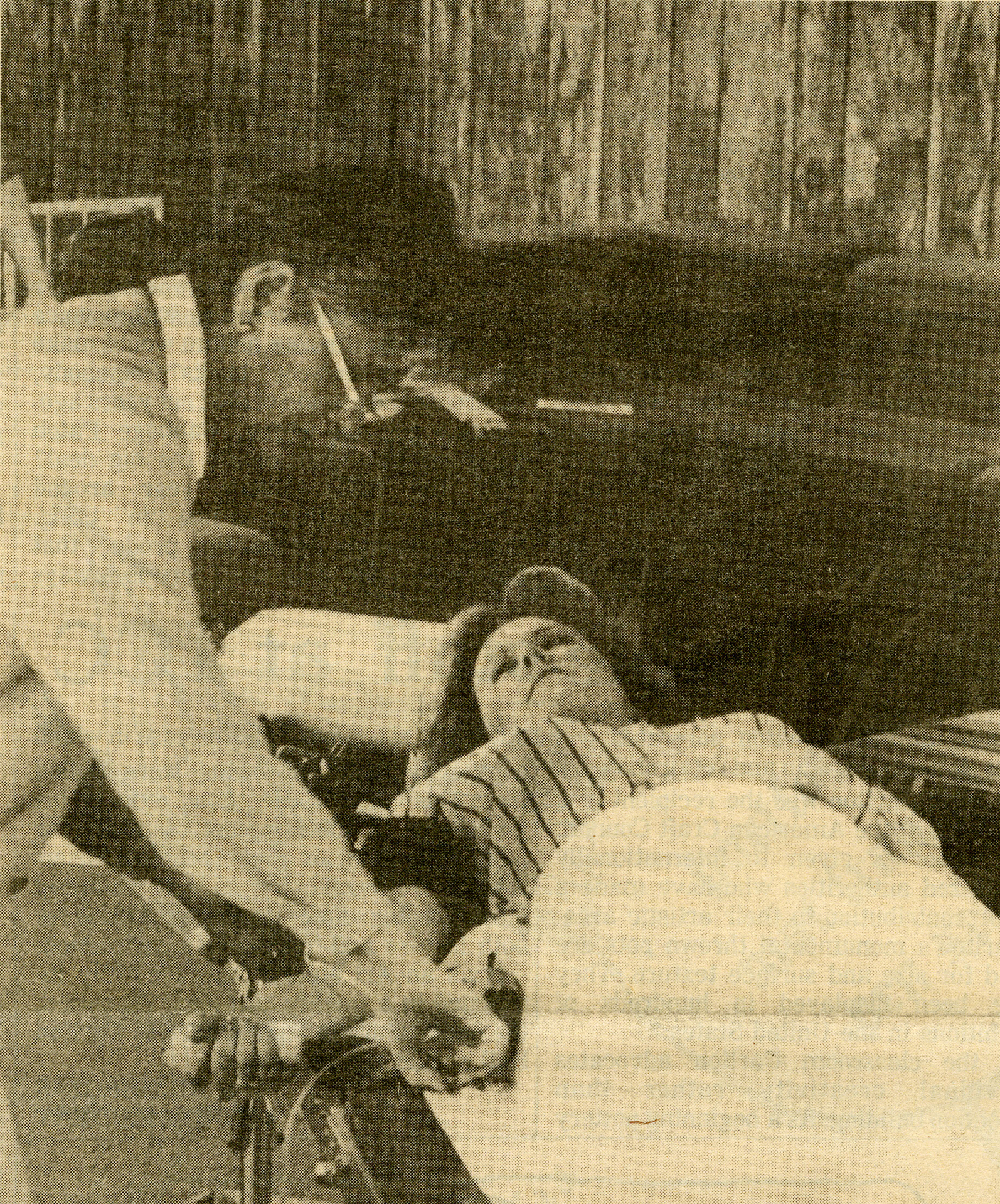
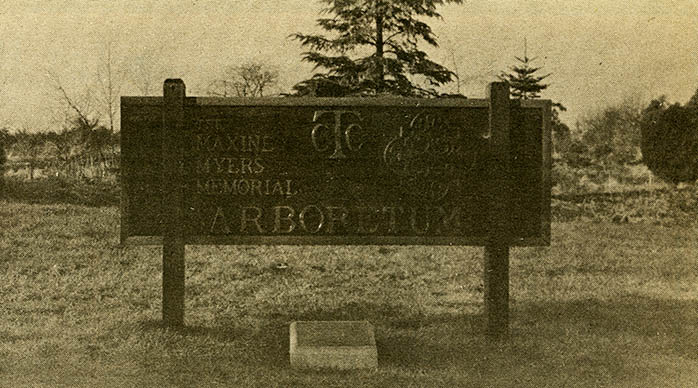
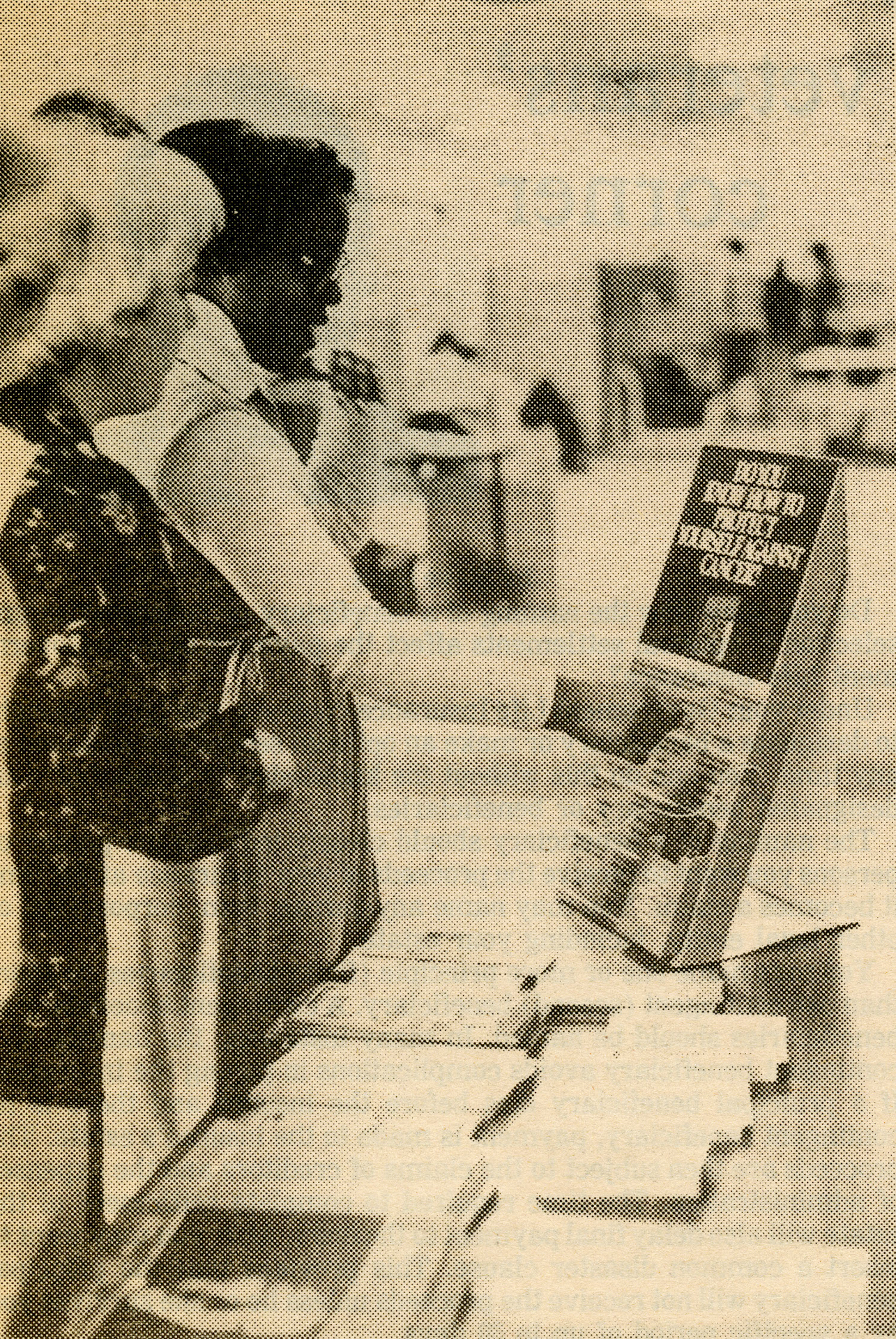
Multimedia Courses
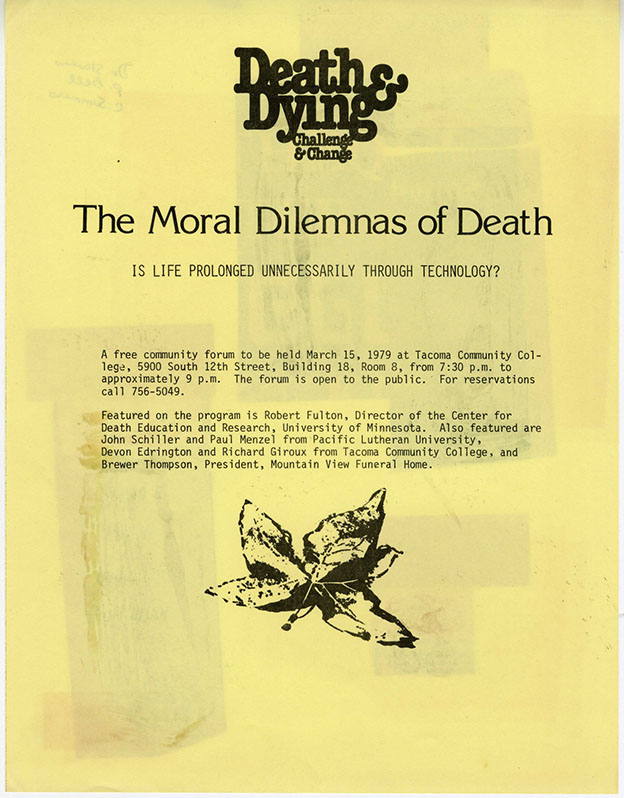
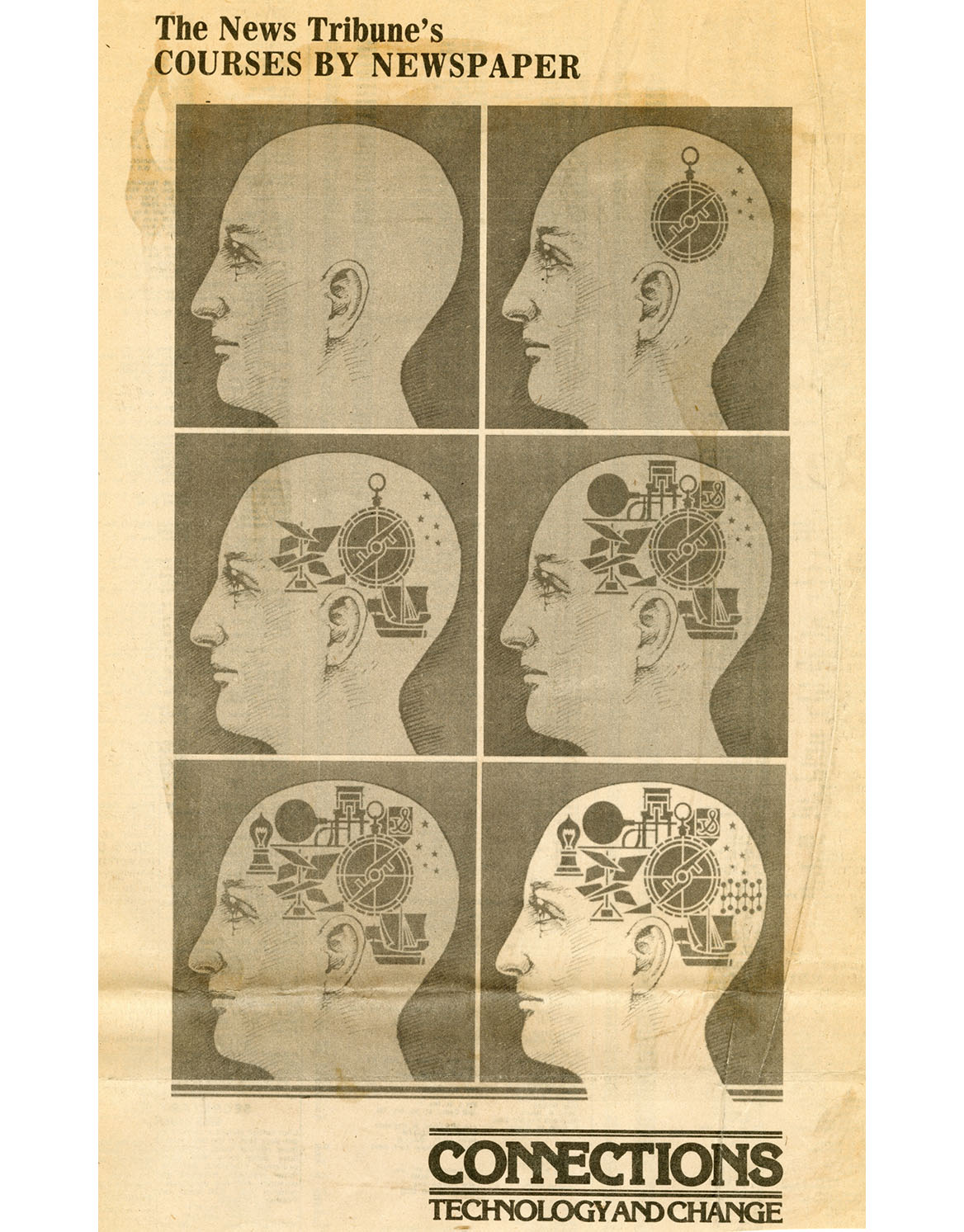
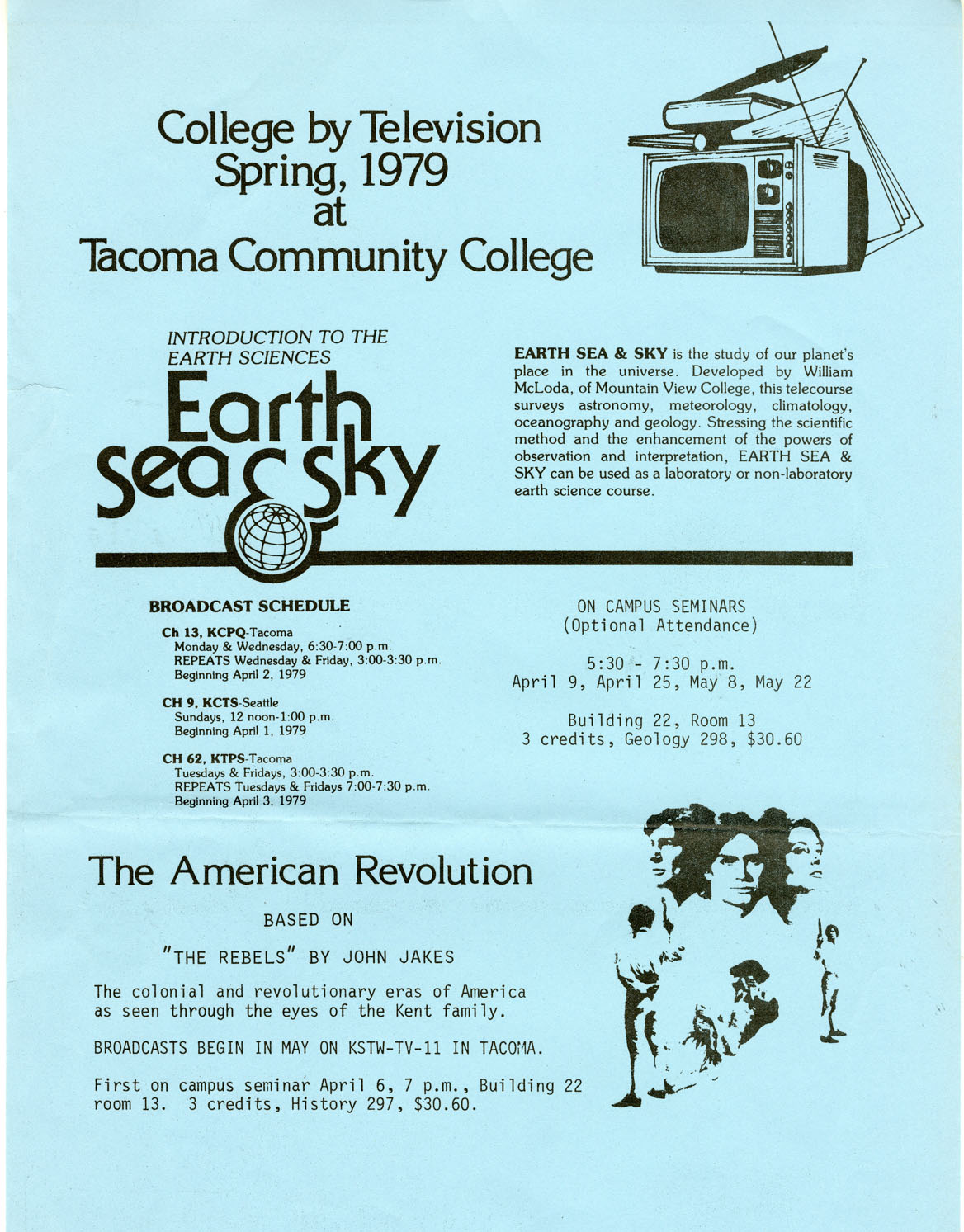
In the late 1960s, history professor Ronald Magden was experimenting with pre-recorded television classes, designed to serve TCC’s students at the remote McNeil Island Federal Penitentiary.111 He would go on to also collaborate with other colleges and instructors on multimedia courses that used newspapers, broadcast television, and audio recordings accessible by telephone.
This set the tone for ongoing innovation in self-guided learning formats, with multimedia and book-based courses continuing to be popular into the 1990s. In the early 2000s, growing internet access exploded the options for full and hybrid distance learning.112
Learning through the Pandemic
The COVID-19 pandemic abruptly reshaped TCC’s approach to instruction following a statewide prohibition on in-person instruction in 2020. For the first time in college history, entire academic quarters were conducted completely online, prompting faculty to quickly adapt. TCC’s eLearning and Organizational Learning and Effectiveness departments partnered to deliver over 70 virtual workshops across dozens of topics in just a few weeks, along with faculty consultations and drop-in sessions. Essential hands-on courses, such as nursing and respiratory care, continued on campus under rigorous safety protocols, demonstrating the institution’s commitment to maintaining educational quality and community health under unprecedented constraints.
